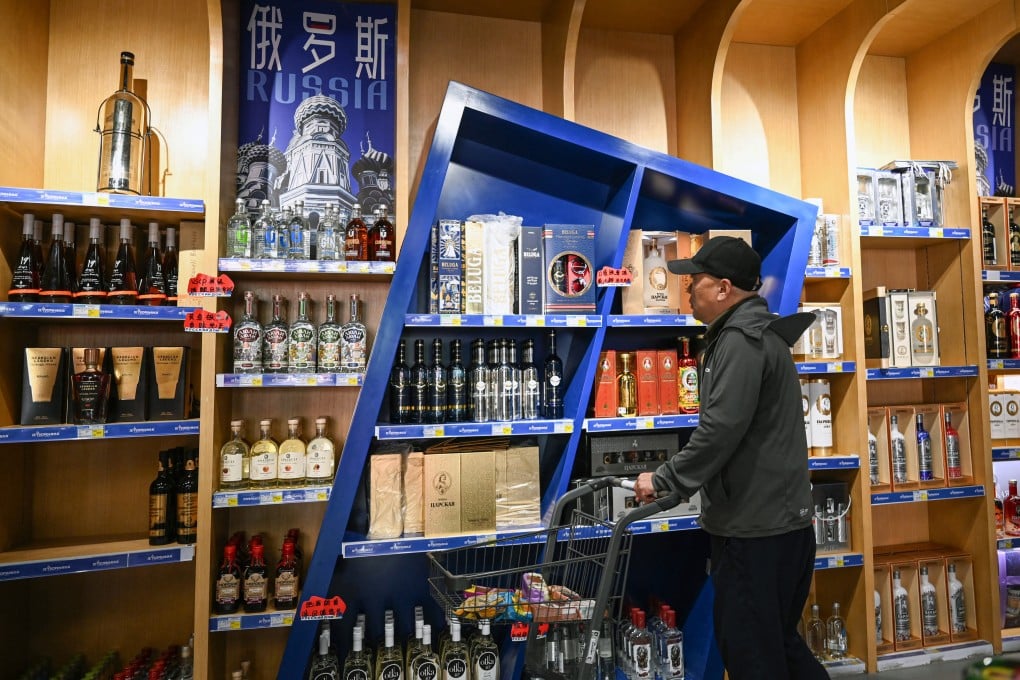Is a glut of phoney Russian goods too much for China’s consumers to bear?
Spurred by stronger trade relations, stores selling Russian products have popped up in China – but many are doubting their authenticity

As if they were copied and pasted, Russian goods markets have sprang up in cities across China in the past few months. They come with all the signature elements: Cyrillic script on blue signage, matryoshka dolls, traditional songs like “Kalinka” and “Katyusha” played on a loop.
But the boom times may be coming to an end as doubts over authenticity soar among consumers. They have ample reason for concern: China does not permit the import of Russian sausage, and the harsh Eurasian tundra is hardly suitable for the tropical durian fruit.
Last week, one such market at a tourist site in the southeastern province of Fujian was placed under investigation by local authorities. According to China Consumer News, officials said the facility had touted false health benefits for its honey and mislabelled domestically produced food as imports.
The national capital had a similar story, according to a report in late December from Beijing Business Today. Across the street from a new Russian market, open for about a week, a similar shop had closed its doors and left behind an ample supply of goods.
The local business outlet said the shop had only opened in April, turning off its lights after a recent inspection by local regulators. They had demanded the shop’s owner provide proof its goods were true Russian imports.
It was far from a unique case. At least two others in the western part of the city have shut down recently, according to the report, both only having been open for around a month.
